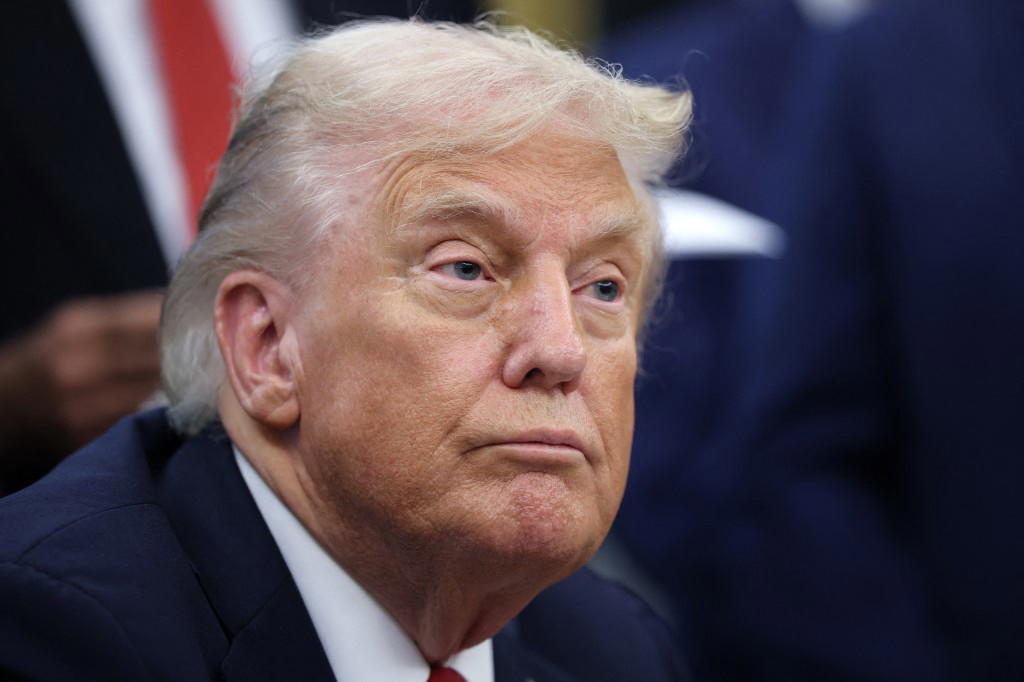By Luminous Jannamike
The Nigerian Supreme Council for Islamic Affairs (NSCIA) has rejected allegations by the United States and some Western organisations that Christians are being subjected to genocide in Nigeria, describing the claims as false, politically driven, and a threat to national unity.
Speaking at a press briefing in Abuja on Sunday, the Secretary-General of the NSCIA, Prof. Ishaq Oloyede, said the council’s stance followed an expanded meeting of its General Purpose Committee, which reviewed recent security and diplomatic developments affecting the country.
He explained that the NSCIA, which represents all Islamic organisations in Nigeria, had resolved to condemn recent threats to the nation’s stability and reject any attempt by foreign powers to portray the country’s complex security challenges as a religious conflict.
“We have not been emphasising the killings of Muslims, not because we are not aware that Muslims are being killed, but because we do not see what is happening as a religious war. This is a national security issue, not a religious one,” Prof. Oloyede stated.
Oloyede warned that some foreign groups, including American evangelical networks and right-wing politicians, were deliberately spreading misinformation portraying Nigeria as a country that persecutes Christians, in order to justify external interference.
He noted that several reports promoted in Western media outlets, especially in the United States, had drawn the attention of senior government officials there and helped to create a misleading perception that Christians were being subjected to genocide in Nigeria.
“It is unfortunate that U.S. President Donald Trump and some of his associates have been misled to label our country as a place of religious genocide. Such language is dangerous, unfair, and undermines the efforts of a sovereign nation fighting terrorism,” he said.
According to the NSCIA, Nigeria’s conflicts are driven by poverty, unemployment, climate change, and criminality, not religion.
The council cited international reports, including those from Amnesty International and the International Crisis Group, identifying desertification, displacement, and competition for dwindling resources as major causes of violence in the country’s northern and central regions.
“This is not a holy war. It is a crisis of survival, a desperate migration of people driven by environmental collapse, poverty, and criminal opportunism,” Oloyede said.
The NSCIA further accused foreign-backed lobbyists and separatist sympathisers abroad of exploiting Nigeria’s insecurity for political and financial gain.
“These lobbyists flood Washington with doctored videos and fake statistics. They quote fabricated figures of Christian deaths and spread religious persecution claims to secure asylum, funding, and attention. This is a betrayal of our nation,” Oloyede alleged.
He added that many of the campaigns were linked to U.S.-based Christian organisations trying to rally their domestic supporters by presenting Nigeria as a country at war with Christianity, while ignoring the equal suffering of Muslims and other faithm.zk communities.
The council also expressed disappointment at the U.S. State Department’s decision to re-designate Nigeria as a ‘Country of Particular Concern (CPC)’ over alleged religious violations, a move Oloyede described as political cynicism intended to pressure Nigeria for its independent foreign policy choices.
He questioned the timing of the designation, noting that it came shortly after Nigeria reaffirmed its support for the two-state solution and the rights of the Palestinian people at the United Nations General Assembly.
“The so-called genocide narrative is being driven by far-right and pro-Israeli actors. Their aim is to distract global attention from the real genocide in Gaza and to punish Nigeria for standing with justice and international law,” he said.
The NSCIA emphasised that Nigeria’s partnerships with countries such as China and Saudi Arabia were legitimate diplomatic relationships, not religious alignments, and should not attract hostility from Western nations.
“Since independence, Nigeria has maintained a non-aligned foreign policy, choosing partners based on mutual benefit. We will not allow our global partnerships to be used as a pretext for destabilisation,” Oloyede explained.
The council also dismissed foreign calls for the abolition of Sharia law, stressing that Nigeria’s Constitution recognises three coexisting legal systems; Common Law, Customary Law, and Sharia Law, each applicable only to its adherents.
“It is irrational for anyone to suggest that Sharia must be eliminated before Nigeria can be accepted internationally. Sharia applies only to Muslims, just as Christian marriage laws apply only to Christians. This is constitutional and fair,” Oloyede said.
Reaffirming its commitment to peace and national unity, the NSCIA urged both Muslims and Christians to resist external manipulation and work together to overcome insecurity and poverty.
“We tell our Christian brothers and sisters: you are not our enemies. We are joint victims of failed governance and criminal insurgency that targets all Nigerians without distinction,” the NSCIA scribe declared.
Oloyede encouraged the federal government to continue diplomatic engagement with the United States but insisted that any genuine assistance must come through partnership rather than interference.
“Genuine assistance requires collaboration and respect. No country has the right to threaten invasion or
impose itself on our sovereignty under the guise of religious protection,” he said.
The NSCIA called on the international community to reject divisive narratives and support Nigeria’s efforts to strengthen internal security, rebuild community trust, and protect citizens of all faiths.
“There is no Christian genocide in Nigeria. What we face is a human crisis, not a religious one. Nigeria’s tragedy is rooted in poverty, climate change, and criminality, and we must fight these together, not against each other,” Oloyede reiterated.
The post ‘Hands off Nigeria’ — NSCIA tells US over ‘fake’ genocide claim appeared first on Vanguard News.

